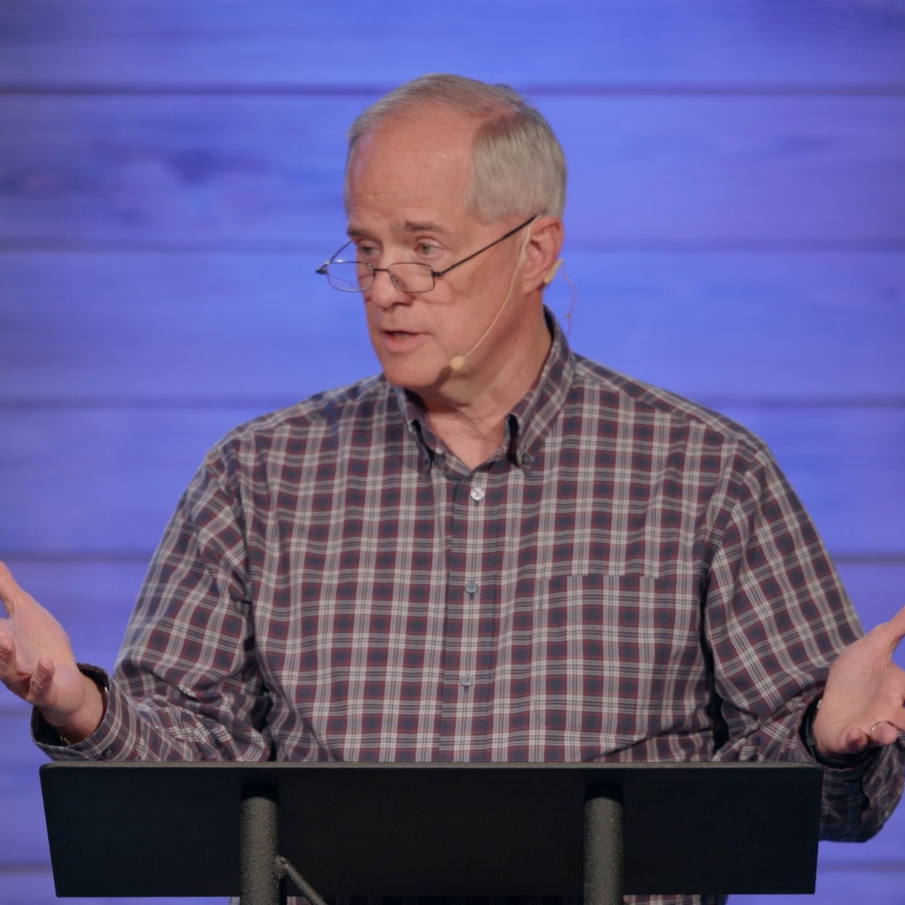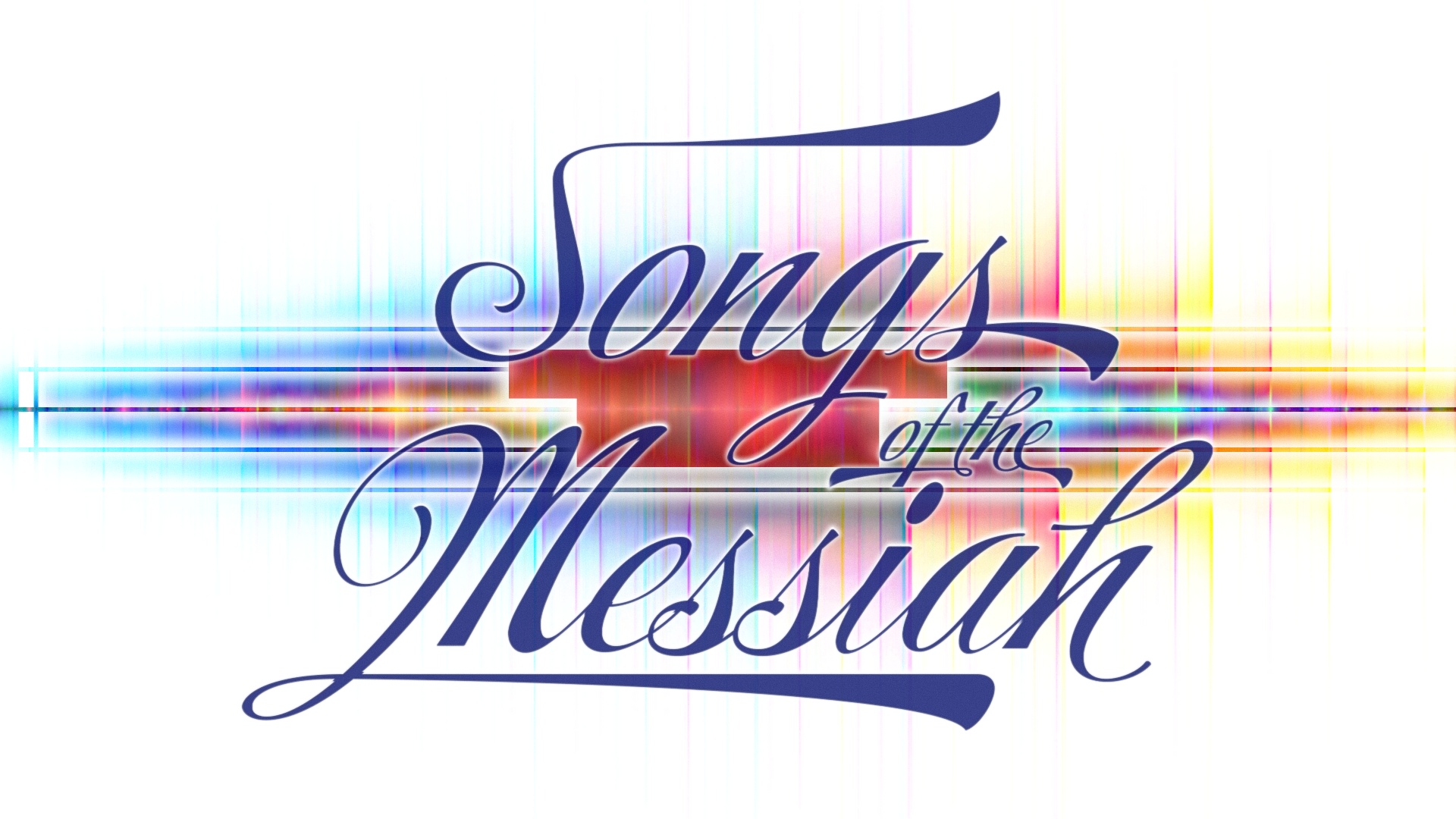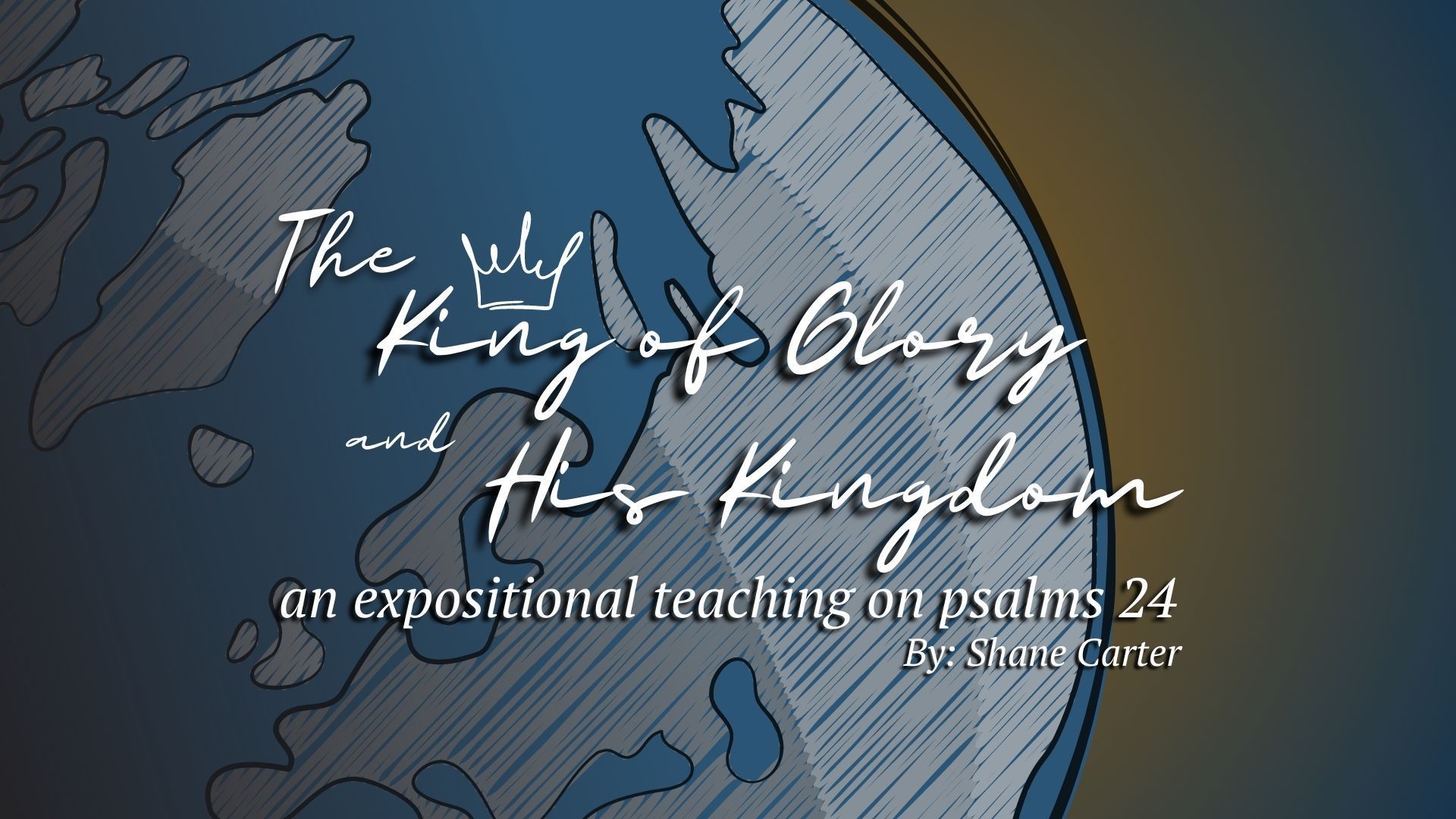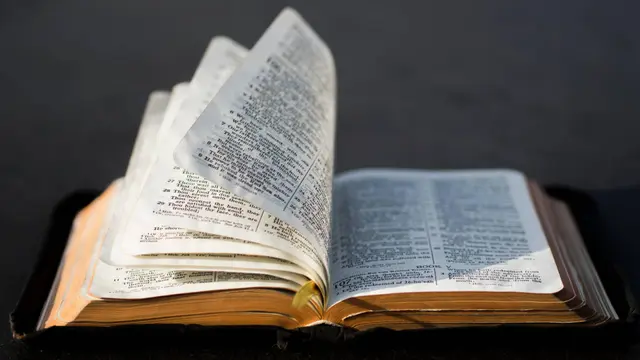MANUSCRIPT
Good evening, Verse by Verse family! I’m Mike Morris...
Welcome to our new spring midweek series, a series I’m calling “Songs of the Messiah”...we’re going to look into the book of Psalms...in this blessed book, one of the signature books of the entire Bible, we’re going to look for the Person and Work of Jesus Christ...in the weeks ahead we will examine six selected messianic psalms from the Book of Psalms... check out the series graphic, designed by Kyle...the “whole” of Scripture shows forth Jesus!
Let’s open with prayer...
In John 12.21, John records a statement I intend to use to keep us focused on the most important goal of this study: to find Jesus in the psalms SLIDE ... 20 Now among those who went up to worship at the feast were some Greeks. 21 So these came to Philip, who was from Bethsaida in Galilee, and asked him, “Sir, we wish to see Jesus.”
Helping people see Jesus summarizes the work of all the disciples of our Lord, in every place and time...and 2000 years later, we join in the mission that began with a handful of Christ-followers and has spread across the globe...and if we are going to take the gospel to those who focus on the Old Testament, then we need to understand the gospel in the Old Testament, including the Psalms...
Let’s quickly overview the book of Psalms...I know you’re familiar with it, so we won’t take too long on this, but I will say this: Psalms is a fascinating, complex, and intricately developed collection of individual compositions that each stand on their own, but that also are closely related to each other and to the book as a whole...150 in total, they have historically been divided into five books within the book...SLIDE
Book I: Psalms 1 through 41
Book II: Psalms 42 through 72
Book III: Psalms 73 through 89
Book IV: Psalms 90 through 106
Book V: Psalms 107 through 150
A large majority of the psalms – 116, to be exact – include text that is called a superscription, text that provides either musical instruction, or the author’s name, or sometimes a historical context...
David is credited with authoring half of the psalms: 73 are attributed to David by superscription and two (2, 95) by New Testament reference; he wrote most of Books I and II; in fact, the final verse of Psalm 72, verse 20, says this: The prayers of David, the son of Jesse, are ended. ...other authors include Solomon, Moses, Ethan, Asaph, and the sons of Korah...and a few have no attributed author...
For tonight, that’s all the background I’m going to cover...we’ll look at more aspects of the entire book in the weeks ahead...but I do want to look at a text tonight that has changed the way I will look at the Old Testament going forward, including the Psalms
I’m talking about a passage from the book of Luke, chapter 24...the setting is the two men on the road to Emmaus on Sunday afternoon, talking between themselves, and they are joined on the journey by the resurrected Jesus...let’s listen in to the conversation...
18 Then one of them, named Cleopas, answered him, “Are you the only visitor to Jerusalem who does not know the things that have happened there in these days?” 19 And he said to them, “What things?” And they said to him, “Concerning Jesus of Nazareth, a man who was a prophet mighty in deed and word before God and all the people, 20 and how our chief priests and rulers delivered him up to be condemned to death, and crucified him. 21 But we had hoped that he was the one to redeem Israel. Yes, and besides all this, it is now the third day since these things happened. 22 Moreover, some women of our company amazed us. They were at the tomb early in the morning, 23 and when they did not find his body, they came back saying that they had even seen a vision of angels, who said that he was alive. 24 Some of those who were with us went to the tomb and found it just as the women had said, but him they did not see.” SLIDE 25 And he said to them, “O foolish ones, and slow of heart to believe all that the prophets have spoken! 26 Was it not necessary that the Christ should suffer these things and enter into his glory?” 27 And beginning with Moses and all the Prophets, he interpreted to them in all the Scriptures the things concerning himself. ...
Several verses later, the two men have rushed back to Jerusalem, found the apostles, and told them what happened...then Jesus appears, and says this SLIDE ...
44 ... “These are my words that I spoke to you while I was still with you, that everything written about me in the Law of Moses and the Prophets and the Psalms must be fulfilled.” 45 Then he opened their minds to understand the Scriptures, 46 and said to them, “Thus it is written, that the Christ should suffer and on the third day rise from the dead, 47 and that repentance for the forgiveness of sins should be proclaimed in his name to all nations, beginning from Jerusalem.
Take careful note of what Jesus says about the Old Testament scriptures...vv. 25-27, He rebukes the men for their slowness of heart to believe the written record of the ancient prophets of Israel...then He teaches them the message of Moses, and the Prophets...and interpreted to them in ALL the Scriptures the things concerning Himself...clearly Jesus saw the complete Old Testament as a record of Himself – His Person, His Work, His Mission...we should look to Jesus as Savior and Lord in ALL the pages of Scriptures...
Then in verses 44-47, Jesus makes that truth even clearer to His own apostles, when He says everything written about me in the Law of Moses and the Prophets and the Psalms must be fulfilled.” 45 Then he opened their minds to understand the Scriptures... everything written in the Law, the Prophets, and the Psalms about Himself, Jesus, must be fulfilled...
The story of Jesus Christ is foretold in the Old Testament, ALL of the Old Testament, and fulfilled in the pages of the New Testament...all that God spoke in each and every OT book, even the Psalms, speaks of Messiah, of Jesus Christ, the long-awaited Prophet, Priest, and King, David’s Greater Son come in the flesh and risen from the dead...ALL of the Scriptures in Jesus’s day, before the New Testament had even begun to be written, bore witness to the Messiah, to Jesus...
SLIDE John 5.39 records the words of Jesus Himself making this truth plain: 39 You search the Scriptures because you think that in them you have eternal life; and it is they that bear witness about me, ... the Scriptures, according to Luke ALL the Scriptures, were an important testimony to the world about Jesus, particularly the Jewish world...
Richard Belcher comments on this idea in this way SLIDE: in preaching from the Psalms, it is important to understand a particular psalm in its historical and literary context, and then to think how the psalm relates to the person and/or work of Christ
Which begs the question, “Well, if ALL the Scriptures bear witness to Christ, including the psalms, then why focus on those psalms we usually call ‘messianic?’”
Because there are some of the 150 psalms – maybe ten percent or so, though those judgments vary – that have a pronounced and obvious focus on the Messiah, and from this side of the cross, we conclude that they speak of Jesus...sometimes the text is evidently focused on the Person of Son of God, or on His Work in His roles of Prophet, Priest, or King...sometimes the psalms are quoted in the New Testament with regard to Christ...sometimes Jesus Himself references a psalm in His teaching...for any and all of those reasons, selected psalms are considered “messianic” – they are a fruitful study of the Word, and I’m excited to look at them with you!
So here are the ones we will cover in the course of these next several weeks...we begin tonight SLIDE with Psalm 8, then Psalms 16, 22, 34, 40, 45, we’ll take a week off for VBS, then conclude on June 28th with Psalm 118...there are two others that would be near the top of any list of messianic psalms – Psalm 2 and Psalm 110 – but Tony has already covered those and they are available on our website...so I encourage you to read ahead, spend some time meditating on these psalms before we meet on Wednesday evenings, and come prepared to share thoughts and ask questions...
Let’s get started!
We begin with the text of Psalm 8
1 O Lord, our Lord,
how majestic is your name in all the earth!
You have set your glory above the heavens.
2 Out of the mouth of babies and infants,
you have established strength because of your foes,
to still the enemy and the avenger.
3 When I look at your heavens, the work of your fingers,
the moon and the stars, which you have set in place,
4 what is man that you are mindful of him,
and the son of man that you care for him?
5 Yet you have made him a little lower than the heavenly beings
and crowned him with glory and honor.
6 You have given him dominion over the works of your hands;
you have put all things under his feet,
7 all sheep and oxen,
and also the beasts of the field,
8 the birds of the heavens, and the fish of the sea,
whatever passes along the paths of the seas.
9 O Lord, our Lord,
how majestic is your name in all the earth!
I’ll have more to say about the setting and context of the psalms in coming weeks, but as we begin let me just note that the first two books (Pss 1 through 72) are nearly entirely Davidic in authorship and emphasis...David was aware of his role as the king of Israel, and even more than that, David knew that he stood in the line of ancestry of the coming one who would be a Son to Yahweh God, the One whose coming would eternally establish David’s own throne (2 Samuel 7.14, 16)...
But even so, there would be enemies who would oppose the rule and reign of God through David...that’s a theme of Psalms 3 through 7, and that’s the flow of thought leading us to Psalm 8...
This psalm is one of the 116 that begins with a superscription... To the choirmaster: according to The Gittith. A Psalm of David. In the New KJV, the translators render the notation “The Gittith” as To the Chief Musician. On the instrument of Gath. A Psalm of David. This reference to Gath, the city of Goliath (I Samuel 17.4), is a beautifully poetic prelude to the content of the psalm: David is reflecting on his own insignificance compared to the creative works of God, yet also mindful of the authority given by God to him and his house...those thoughts correspond to David’s experience of defeating the stronger Goliath by the power of Yahweh...the idea of God using the weak to overcome the strong is key to this psalm...
The text begins and ends with an inclusio, verses 1a and 9, intended to draw full attention to the might and glory, the majesty and beauty, of the Almighty God:
O Lord, our Lord,
how majestic is your name in all the earth!
Between the two halves of the inclusio, is a simple two-part chiasm, made up of David’s understanding of the smallness of man in verses 1b through 4, then the counterpoint, God’s granting of greatness of man in verses 5 through 8...but as is always the case, there’s more here than just what’s on the surface...let’s look at the two passages in order...
The Smallness of Man
You have set your glory above the heavens.
2 Out of the mouth of babies and infants,
you have established strength because of your foes,
to still the enemy and the avenger.
3 When I look at your heavens, the work of your fingers,
the moon and the stars, which you have set in place,
4 what is man that you are mindful of him,
and the son of man that you care for him?
This passage leans heavily into the creation account of Genesis 1 and the account of the fall in Genesis 3...let’s take a closer look...
“You have set your glory above the heavens” certainly relates to David’s reflections on the creation account...
But then David introduces an unexpected idea...he suddenly speaks of conflict, not in the creation account of Genesis 1 and 2, but in the account of the fall of humanity in Genesis 3...in Psalm 8, God says that He will bring or establish strength from the mouths of babies and infants to still, or defeat, His enemy and avenger...so we see a reference back to Genesis 3 and the very beginning of the gospel, the protoevangelium, and God’s promise to crush the head of the serpent through the seed of the woman...the line of David, child after child, generation after generation, from Adam all the way to Jesus Christ, culminated in the defeat of God’s enemy...and while God has many enemies, this word is a singular noun...the word “enemy” in Psalm 8.2 and “enmity” in Genesis 3.15 are connected, and related in both cases as a person or action of hostility toward God...commentator James M. Hamilton described it this way SLIDE: in the promise of Gen 3:15 God answered Satan’s triumphant roar with a baby’s cry. ... Through the king from David’s line, who will be a new Adam, David knows that God will reestablish his dominion over creation .
David continues from the weakness of babies to related idea of the seeming insignificance of humanity as a whole in verses 3 and 4...quoted by the author of Hebrews in 2.5-8 of that book...
3 When I look at your heavens, the work of your fingers,
the moon and the stars, which you have set in place,
4 what is man that you are mindful of him,
and the son of man that you care for him?
It’s still true...when we look up at the night sky, we instantly realize our place in the universe, don’t we? The created order is the work of God’s fingers SLIDE ...Psalm 19.1 echoes this verse when it says, The heavens declare the glory of God,
and the sky above proclaims his handiwork.
But look at verse 4 SLIDE: looks like normal Hebrew parallelism, found often in the psalms...but again, there’s more here...you would expect to see the same Hebrew word for “man” in both cases, but they aren’t the same word...the first word is ‘enos’ pronounced “e – nosh” – it’s the name of Adam’s grandson, the third generation...the second use of the English word “man” is the more typical term, ‘a – dam’ or “Adam” – to read it as names would be “what is Enosh that you are mindful of him, and the son of Adam (Seth) that you care for him?”
David alludes to the first three generations of mankind in reverse order: Enosh, Seth, and Adam, and asks God, “what are we, weak and insignificant humanity, that you should care for us? This near-genealogy brings yet more meaning to the reference to ordaining strength from the mouths of babes...Hamilton elaborates on this when he says this SLIDE:
in Ps 8 we can see David contemplating his own new-Adam role as one who is to exercise the dominion that God has given to him. Moreover, David understands the purpose of his dominion to be the extension of Yahweh’s glory, and he understands that dominion to be in conflict with the way “the enemy and the avenger” seeks to establish his own dominion through the kings of the nations who set themselves against Yahweh and his anointed (2:1–3). --- SLIDE --- David understands that God chooses the weak things of the world, things like babies and infants, to shame the strong, and that God made a promise about the seed of the woman, whose descent can be traced down from Adam through Seth and Enosh to Abraham and Judah and Boaz to Jesse. Standing in that line of descent, David knows that God keeps his promises, those made in words of judgment over the serpent and those made to the likes of Abraham, Judah, and himself. The man who wrote Ps 8, after all, also wrote Ps 110.
Now David moves on to the authority granted by God’s keeping of His covenant...let’s turn to verses 5 through 8...
The Greatness of Man
5 Yet you have made him a little lower than the heavenly beings
and crowned him with glory and honor.
6 You have given him dominion over the works of your hands;
you have put all things under his feet,
7 all sheep and oxen,
and also the beasts of the field,
8 the birds of the heavens, and the fish of the sea,
whatever passes along the paths of the seas.
Now David’s thoughts return to Genesis 1.28, which he recalls here SLIDE ...
28 And God blessed them. And God said to them, “Be fruitful and multiply and fill the earth and subdue it, and have dominion over the fish of the sea and over the birds of the heavens and over every living thing that moves on the earth.”
This verse from Genesis is often called the dominion mandate, and has never been rescinded by the Lord...redeemed humans are to be God’s vice-regents, serving under the kingship of the Lord Jesus, with authority but under His authority...we see it in both the OT and NT...
In Daniel 7.13-14, the Son of Man is presented to the Ancient of Days, and receives a kingdom; SLIDE in verse 18, the saints receive the kingdom under his authority... 18 But the saints of the Most High shall receive the kingdom and possess the kingdom forever, forever and ever.’
In Luke 12.31-32, as Jesus teaches what in Matthew we call the Sermon on the Mount, Luke records these words SLIDE ... 31 Instead, seek his kingdom, and these things will be added to you. 32 “Fear not, little flock, for it is your Father's good pleasure to give you the kingdom.
Finally, John records this truth for us in the last chapter of the Bible SLIDE, Revelation 22.3-5: 3 No longer will there be anything accursed, but the throne of God and of the Lamb will be in it, and his servants will worship him. 4 They will see his face, and his name will be on their foreheads. 5 And night will be no more. They will need no light of lamp or sun, for the Lord God will be their light, and they will reign forever and ever.
Stunning statement – but true...we will reign with Christ for all eternity!
So what do we see of Jesus from this psalm?
He is the One who is the fulfillment of the Genesis 3.15 prophecy of the seed of the woman...He is the One who will crush the serpent’s head, for it is from His mouth that strength is established to ultimately defeat the Enemy of God (Psalm 8.2)
He is the culmination of God’s faithfulness through the generations up to His birth
He is the Agent of Creation, who, on behalf of God the Father (Hebrews 1.2) made the world, and it is by Him that all things hold together (Genesis 1-2, John 1.13, Colossians 1.15-17, Hebrews 1.1-3a)
Jesus has affirmed mankind as His vice-regents over creation, giving mankind dominion over the created order in this world and giving redeemed humanity delegated authority over the kingdom in the next (Genesis 1.28, Revelation 21.3-5)
His Name is majestic in all the earth!

Taught by Mike Morris
Associate Pastor of Verse By Verse Fellowship






